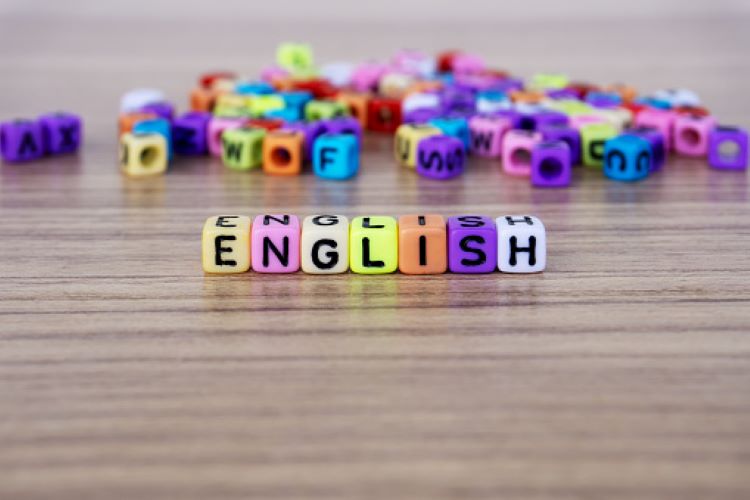In English, there are multiple future tenses, just as there are multiple past and present tenses. These vary based on the purpose and what we’re trying to communicate.
We’ll examine four different future tenses today: future simple, continuous, perfect, and perfect continuous, with its examples, usage and rules. We’ll show you how to use them and when to do so. We’ll also show you some entertaining films and activities to help you better comprehend them.
Are you prepared to learn? Let’s get started!
Also Read: What are Determiners in English Grammar? Definition, Rules, Usage with Examples
Future Tense in English Grammar
It (abbreviated fut) is a verb form in grammar that normally indicates that the event represented by the verb has not yet occurred, but is expected to occur in the coming period.
The French camera, which means “will love” and is derived from the verb aimer, is an example of a future tense form (“love”). The “future” represented by the future tense normally refers to the coming period as it exists at the time of speaking, while in settings where relative tense is used, it can also refer to the future as it exists at another point in time.
Although English lacks an inflectional future tense, it does offer several syntactic and lexical tools for expressing future-related ideas.
Future Tense Rules
This is used to represent later incidents that haven’t gone on yet but may arise in the coming time. It’s a future-tense version of the verb that doesn’t exist right now. Examples
She’ll be performing Kuchipudi to classical music.
We’ll be moving to the house in upstate Brazil first thing tomorrow at sunrise.
In ten minutes, the train will depart.
Simple Future
#It is formed by combining the word will/won’t with the basic infinitive (infinitive without to).
#Will is a modal verb, which means it doesn’t alter depending on who is acting.
#We can utilise contractions, for example, I’ll = I will
#We can also use will not in the negative to emphasise something.
#In a speech, the word won’t is more common.
#We say yes X will or no X won’t in short answers.
Uses and Examples
#Instant: I’m hungry, therefore, I’m going to cook a sandwich.
#Later predictions based on faith: I’m confident you’ll win.
#Promises: I’ll keep your secret to myself.
#Offers: I’ll take care of your luggage.
#Requests: Will you inform Henry that I called?
#Threats: I’ll tell Mum if you do it again.
#Later Facts: I’ll be back later tonight.
Also Read: Infinitive in English Grammar: Let’s Learn English Effectively to Get More Opportunities!
Shall
With I and we, we can use shall instead of will for later time references. It is, however, a little more formal and popular.
For example, we will never forget this lovely day.
In inquiries, shall is frequently used to give suggestions, make offers, or seek advice.
E.g. Do you want me to carry these bags for you?
Is it okay if I open the window?
What should I say to Mary about the shattered vase?
Be Going To vs Will
It’s crucial to stress that we are going to not be willing for evidence-based predictions and plans.
E.g.
Take a look at those drab clouds. It is unmistakably going to rain!
What are your plans for the evening after work?
I’m getting ready to go to the gym.
Future Continuous
#An action that is taking place at a specified point in the coming time. I’ll be going to Hyderabad at this time tomorrow.
#An action that we consider to be novel or fleeting. Until I find a new career, I’ll be working for my father.
#Predictions are educated assumptions about what will happen in the coming time. I’m guessing he’ll show up for the party.
#Predictions for the coming time. I’m guessing she’s getting married right now.
Polite inquiries. Are you planning on joining us for dinner?
Static Verbs
Some verbs cannot be used in the continuous tense, so keep that in mind. These are referred to as stative verbs. Stative verbs are used to express emotions, states, thoughts, and views. For these verbs, we employ the simple tense instead of the continuous.
Future Perfect
Will/won’t + have + past participle in the perfect’s form.
-ed is the ending of regular past participles.
Irregular past participles do not conjugate in the same way as ordinary past participles.
#A task that must be completed by a certain date in the coming period. We’ll have been married for 50 years in December.
#When you say by or by the time, you’re referring to a period that occurred previously. By the time you get home, I’ll have done this report.
#To indicate the end of a period, use in, in a day, in two weeks, in three months, and so on. I’ll be through with my degree in three years.
Future Perfect Continuous
#To demonstrate that something will continue until a specific later occurrence. I’ll have worked here for ten years in December.
#To demonstrate the completion of a task right before the start of another time action (cause and effect). I’ll be exhausted when I arrive because I’ve been working all day.
#With time expressions (by + then, tomorrow, next year, and so on, by the time, when) We’ll have travelled for twenty hours by the time we arrive.
Future Tense Examples
| future tense | I will go.
We will celebrate our anniversary by flying to Brazil. |
For an action that will take place in the coming period, the simple future tense is employed. |
| progressive tense | I will be going.
The Rambo Circus will be performing in Rajasthan for the next 3 weeks. |
For an ongoing action that will take place in the coming period, the future progressive tense is employed. |
| perfect tense | I will have gone.
By the time you arrive, we will have finished the lunch and the party. |
The future perfect is used to describe or interpret something that will happen in the coming period. |
| perfect progressive | I will have been going.
In October next year, you will have been studying for six years. |
The future perfect progressive is used to describe a continuous action that will be completed at a later date. |
Also Read: Practice Modal Verbs in Grammar: Let’s Grab the Knowledge of the Functions of the Verbs!
Examples
#He’ll arrive in New York the next day.
#They plan to develop a phone with artificial intelligence.
#In the following hours, it will rain.
#We have a difficult few days ahead of us.
#Next week, we’ll be relocating to Texas.
#We’ll be leaving at 6 p.m.
#They’ll follow your instructions.
#Dan and I will meet at 9 a.m.
#I am looking forward to seeing you soon.
#They’ll write their best friend a letter.
#He’ll shut down the store.
#At the weekend, she will see her pal.
#When I get to the bus terminal, I’ll read the newspaper.
Some More Examples
#I’m going to bed around 8 a.m. tomorrow.
#They’ll be playing at this time the next day.
#When I go home, she’ll be watching TV.
#While you watch a movie, I’ll be working in the office.
#By Monday, I’ll have finished the assignment.
#Before her father arrives, she will have cleaned the house.
#By tomorrow, Alex will have filed the tender.
#She’ll be gone, till I get there to see her.
#By January, they will have completed the bridge.
#Your children will be the country’s coming time.
#Our house will be painted next week.
#You’re going to break down.
Future Tense Usage
Actions or states that begin and conclude in the coming time. These things haven’t happened yet, but they will at some point:
I’ll meet him at the zoo.
The monkeys will eat any bananas given to them which were previously given by visitors.
We employ the simple future tense for a variety of reasons in general. Here are some of the most typical reasons for using this.
Also Read: Types of Adjectives: Start and Build the Foundation of Grammar Through the Easy Way
Usage 1
We frequently utilise this to make later forecasts or estimates. These can be certain predictions or ones that are more speculative.
He predicted that it will rain the next day.
I believe our baseball team will win the game.
Her cat, she is certain, will despise her new puppy.
We can also pose questions about the coming time using this tense.
Will we be able to locate the pirate treasure?
Will the Grinch learn the true meaning of the holiday?
Usage 2
The simple tense can also be used to communicate factual claims about the coming time.
Next year will be a leap year.
We’ll have to spend even more money on this pricey soap.
We use the simple tense to take into consideration coming time conditions or possibilities.
My parents will take away my phone if I fail this test.
She will only attend the party if she is accompanied by her sister.
Finally, we may make commands with the simple future tense.
You will submit your term paper on time, or you will receive a failing grade in this class.
Conclusion
You might have acquired the notion of writing a flawless use with the correct tense usage after reading this post. Congratulations! You now know everything there is to know about future tenses in English.
This article contains a wealth of useful information. Quite a bit, to be honest. As a result, take things one at a time. The skeleton of a language is its tenses. Without them, the bulk of the world’s languages would perish over time.
Tenses are necessary for locating events and determining what happened when especially in English. Even at the beginning of your learning journey, this is critical.
You also have the choice to download the Fluent Life app on your mobile phone for customized personal lectures where you get instant feedback on your performance and can resolve all your queries.
Also Read: Punctuation in English Grammar: Let’s Try to Understand the Rules and Usage to Make Writing Smoother






